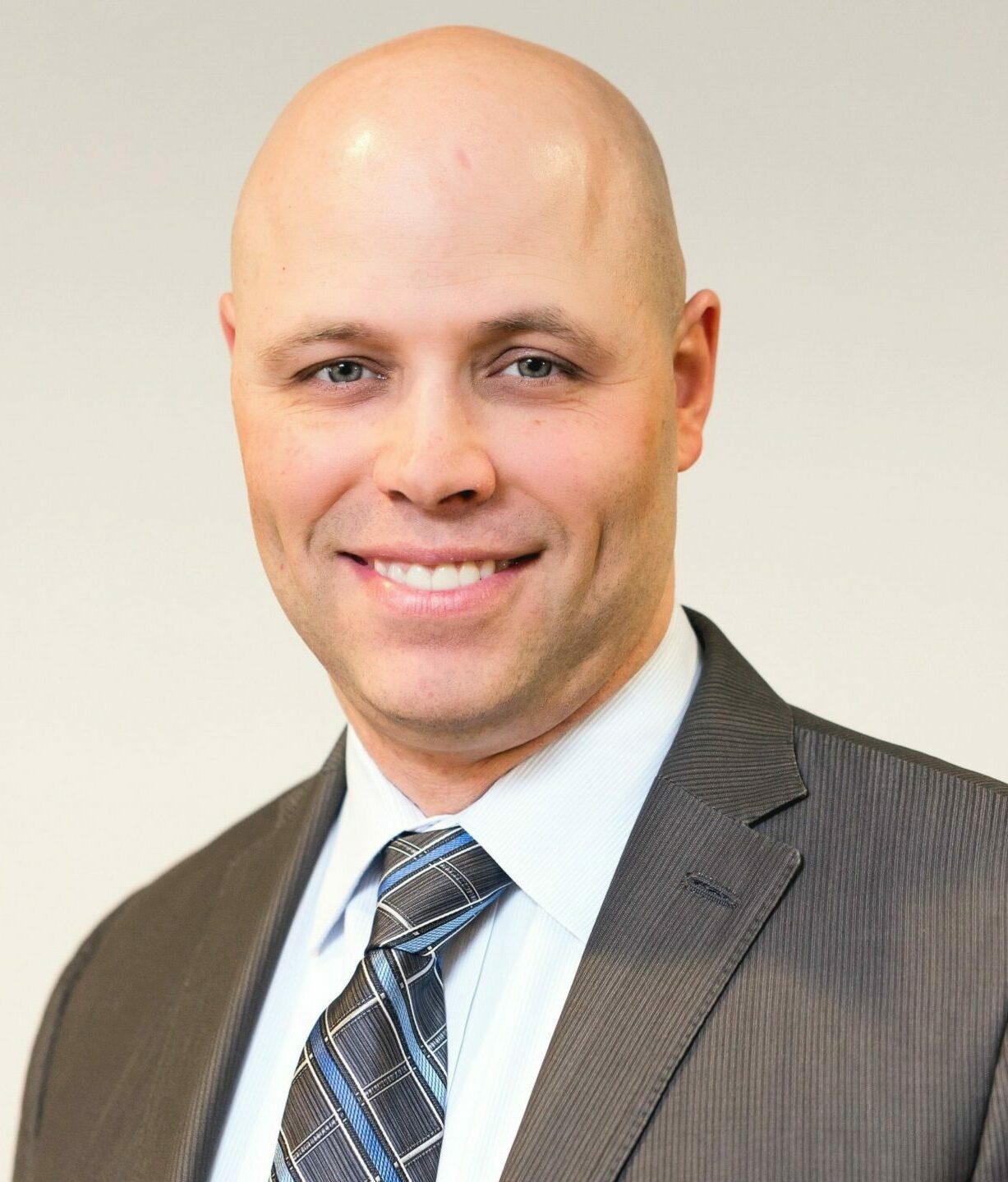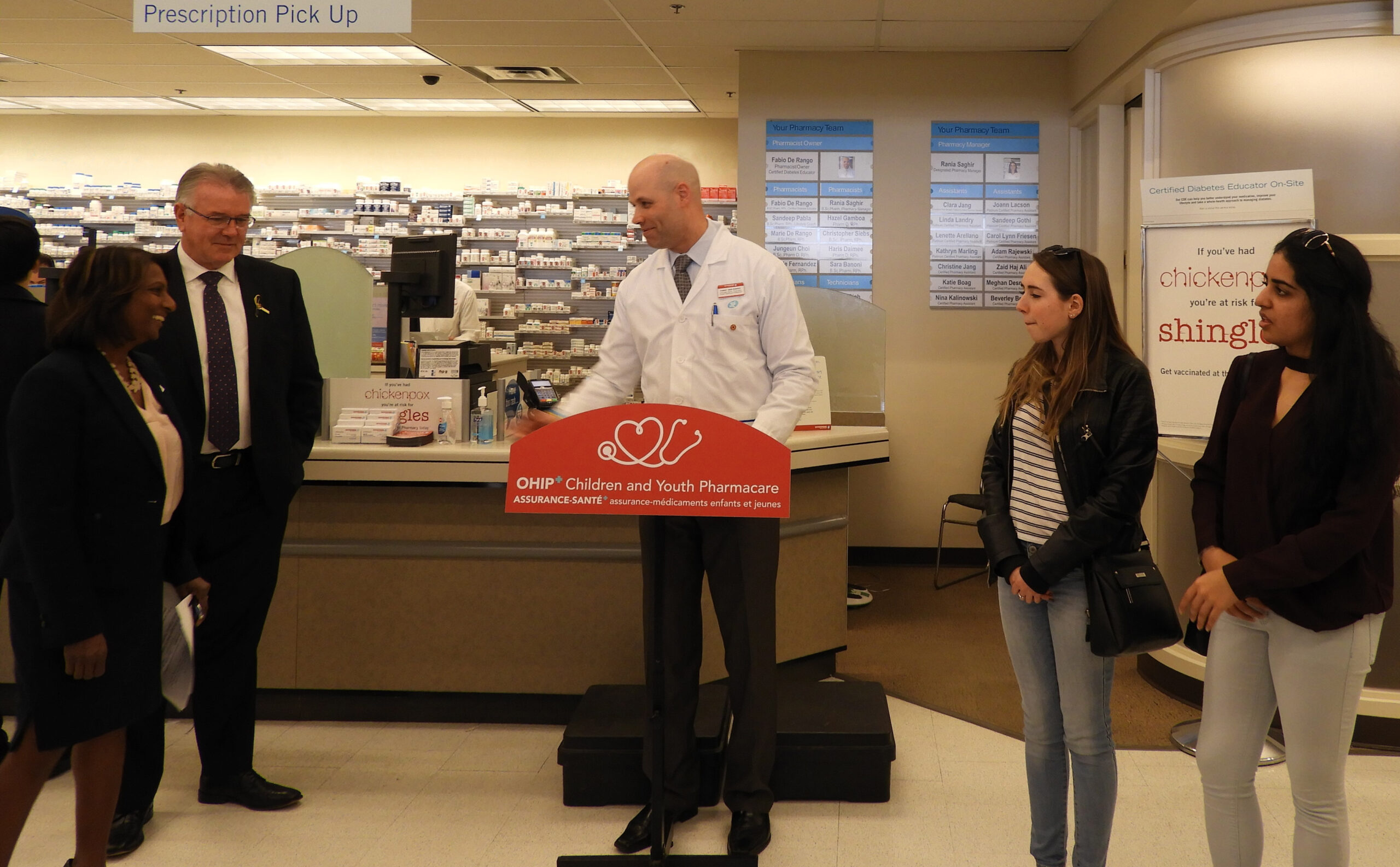Fabio De Rango, Pharmacy Owner and Certified Diabetes Educator (CDE) understands how important patient-centered care is for individuals living with diabetes. De Rango dedicates much of his practice to working with patients with diabetes. Taking a practical approach with patients, De Rango breaks down information from Diabetes Education Centres into four digestible sessions for patients. Each session builds upon the previous session and provides new information such as sick day management.
“I feel that pharmacists have a big role to play with diabetes. I feel that our accessibility tends to offer our services to patients more readily than what might be available through doctors’ offices or diabetes education centres. I’m out there doing presentations, I do home visits, A1C tests, waist circumference measurements, weight, and cholesterol screenings. I try and see my patients every 3 months. It’s important to educate patients so that they can manage their own disease state.”
Approximately 68% of Ontario pharmacists work in community pharmacies, which are highly accessible and frequently serve as the first point of contact for patients in the healthcare system. As part of a diabetes care team, pharmacists can assist patients with drug therapies, medication management, nutrition, lifestyle adjustments, and much more. Pharmacists can have a substantially positive impact on the care for patients living with diabetes.
Initially wanting to be a teacher, De Rango decided to pursue a career in pharmacy because of his friends. He applied for the pharmacy program at the University of Toronto (UofT) and was accepted. Naturally driven by his passion for teaching and educating patients, he was motivated to focus on diabetes education because both of his parents were diagnosed with the disease at a young age. “I love doing presentations, and as a pharmacist, I love the education piece,” he says. “Just seeing the patients and seeing the light turn on in their heads and their eyes light up when they finally understand something. We can always tell them what to do but if they don’t understand the how, or the why they can never really manage their own behaviours.”

Fabio De Rango, Pharmacist and (Certified Diabetes Expert) CDE
Diabetes treatments have evolved significantly since the 1921 discovery of insulin by Frederick Banting and Charles Best. Research and medications on peptides known as GLP-1 and GLP-2 have shown positive outcomes for individuals with type 2 diabetes. More than 100 million people with type 2 diabetes have been treated with a GLP-1 analogue or a DPP-4 inhibitor, a class of drugs that prevents the breakdown of GLP-1 and GLP-2 and helps improve blood sugar control. 1
Commenting on new diabetes research and advancements De Rango says. “There’s a lot of research happening now that’s very promising. They are really working on how we can affect the GLP-1 receptors. They are looking at coding and imaging it so that they can improve medications so it can target those receptors,” he continues. “There are immune therapies coming out right now especially for type 1 diabetes, we know that it’s an autoimmune disease and now they are trying to figure out how they can target the immune response, so the effects of type 1 diabetes can be lessened. They are looking at transplanting islets [beta cells] on the pancreas, or even an artificial pancreas so that we can treat diabetes. There are a lot of intriguing areas being worked on. In the past it was just medications that lowered blood sugar, now it’s so diverse we are looking at medications that target the source of the cause of diabetes.”

Fabio De Rango, in his pharmacy doing a presentation.
It has been recognized that with early intervention, proper lifestyle changes, and appropriate therapies and management, patients with diabetes can improve their health outcomes. De Rango emphasizes as a pharmacist, establishing and investing in patient relationships are also important to help manage the disease. Early in his pharmacy career, he observed that having a relationship-centered approach helped patients to better absorb information and resulted in better outcomes when outlining the importance of changing behaviours.
“When I hire new staff, I always tell them anyone can sell what we sell and everyone can do what we do, but no one can replace the relationships we have with our patients. People don’t come to see me because I sell the best cholesterol medication, they’re coming because of the relationship they have with each individual on my team,” he says. “For me what I think makes us stand out are the relationships each of my team members have with their patients and the impact those relationships can have on their lives.”
To read more about the 100 Years of Insulin and discover upcoming events visit, opatoday.com/100yearsofinsulin.
Reference:
1 Oldfield, Jim (2021, April 7) U of T scientist awarded Gairdner International Award for metabolism research. University of Toronto. insulin100.utoronto.ca/news/u-of-t-scientist-awarded-gairdner-international-award-for-metabolism-research